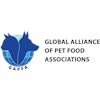
“Consumers have been tested in more ways than one over the past year — and beyond. The unease of living life disrupted by not one, but a multitude of unpredictable circumstances, has left its mark on the world and shifted consumer sentiment yet again.” So reads the introduction to a new 2024 outlook report from NielsenIQ (NIQ) about the “pressured state of global consumers.”
The report does offer some tips and strategies for businesses in this climate (more on those below), but it’s difficult to read the introductory remarks without feeling some level of concern. Is that warranted, especially for pet food companies?
Perhaps, but the good news is that pet food consumers seem to be dealing rather well with circumstances such as high inflation, according to a recent survey from pet food ingredients supplier Beneo. While almost 90% of respondents believe pet food prices have increased in the past year, less than 20% (one in six) said they have switched to a less expensive pet food because of those prices. The majority of pet owners are still focused on their pets’ health over anything else.
Pet owners focus on value, digestive health
The survey, conducted in August 2023, involved 2,500 pet owners in five countries representing several global regions: the U.S., Brazil, the U.K., Germany and China. Dog and cat owners were equally represented, with 250 each per country.
Price was a definite factor in these consumers’ pet food purchasing choices, but value seemed more important, according to Beneo. “When buying pet food, survey respondents considered price less important than ingredient quality, nutritional value, taste and health claims,” wrote my colleague Tim Wall, reporting on the survey results. “More than half of respondents were willing to pay a premium for pet food with health-promoting ingredients backed by empirical evidence.”
In fact, more than 80% of respondents consider their pets’ health as important as their own. (It’s tempting to wonder if the remaining respondents consider their pets’ health more important; maybe some do!) In addition, the survey found that more than 75% of the owners understand the importance of digestive health on many aspects of health and wellness, not just the gut. Accordingly, more than 30% feed their pets foods with digestive health claims.
These pet owners also prioritize protein quality — 70% rated it important — and sustainability claims; 80% said they consider such claims when deciding on pet food purchases.
Current economic environment still poses challenges
Despite the encouraging survey results, pet food is one of those fast-moving consumer goods (FMCG) that consumers need to purchase often and repeatedly, meaning price sensitivity will always factor in to some extent. The NIQ report offers several strategies to succeed and grow in the current FMCG environment:
Promote with purpose. As inflation dissipates, it will become apparent that value sales growth is slowing or lower in many product categories as volume sales decline, too. To support your bottom line, “respond strategically to avoid over-promoting,” the report says. In other words, don’t rely too much on promotional offers (even though pet owners in the Beneo survey said they do take advantage of those).
Maximize assortment. Value might mean different things to different types of consumers, NIQ says. “Financial polarization between affluent and vulnerable consumers is driving an expanded search for value options, blending quality and affordability uniquely.” That may require a new assortment of value-type products.
Innovate to stay relevant. NIQ data show companies that have continued to innovate have benefited the most even during market slowdowns.
Reach consumers where they are. Remember that today, consumers move more fluidly across retail channels, and their shopping habits continually evolve.
Make shopper-centric decisions. “Personalize your approach to providing value to key consumer segments,” NIQ says.
Be proactive and precise with wellness. As the Beneo survey showed — as have other sources repeatedly over the past few years — pet owners prioritize their pets’ wellness, and pet food companies should honor and plan around that. “Wellness-focused spending is a pocket of growth that should not be overlooked in today’s challenged marketplace,” the NIQ report reads.



















